Photos from the conference
Final Message from conference
A Dehonian Conference on the Dual Threats of Climate Change and Nuclear Weapons
Next year the Church celebrates the 10th anniversary of Laudato Sí, Pope Francis’ encyclical letter addressed to all people, to “every person living on this planet” to “care for our common home.”
This was the spark that brought approximately 90 people from throughout Canada and the United States to Olive Branch, MS (just south of Memphis), October 7-10, to discuss two seemingly diverse themes: climate change and nuclear weapons. Hosted by the Priests of the Sacred Heart (Dehonians), the “Dehonian Conference on the Dual Threats of Climate Change and Nuclear Weapons,” featured presentations by Archbishop John Wester of Santa Fe and Sr. Kathleen Storms, SSND. Participants included Dehonian priests and brothers, coworkers, parishioners, students, seminarians and others with a connection to the religious order.
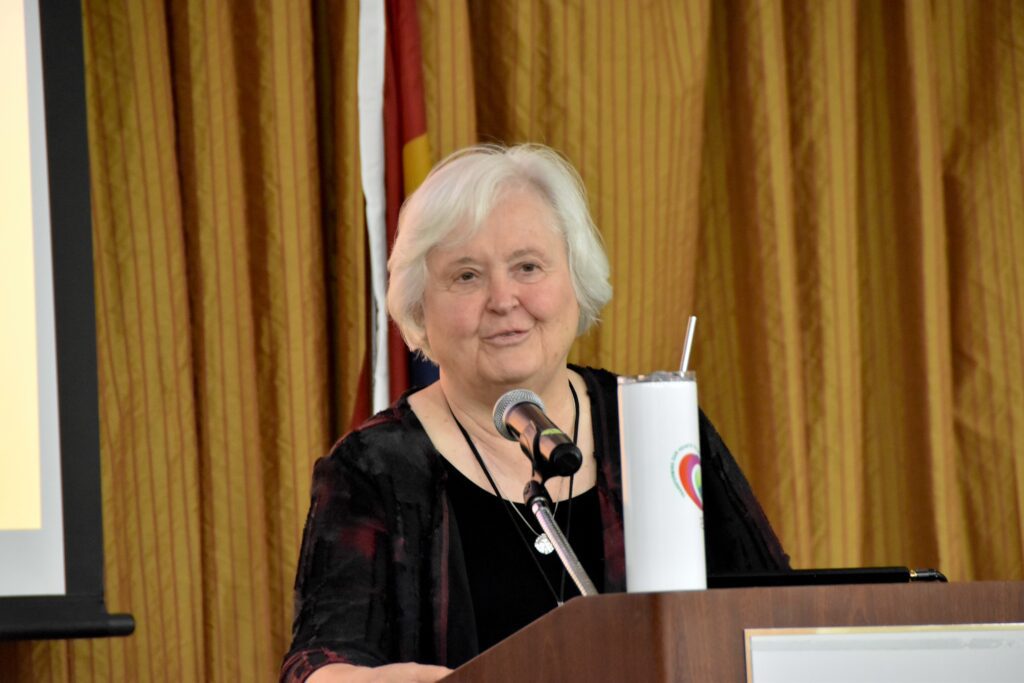
According to the presenters, two of the greatest threats to our “common home” are climate change and nuclear weapons.
“Climate change is a normal process, but what we are experiencing now is climate disruption,” said Sr. Kathleen. “Disruption gets to the roots of our existence; it creates extinction.”
As she spoke, Florida was bracing for Hurricane Milton, the second of two significant hurricanes with devastating impacts in just a few weeks’ time.
“We often look at the environmental crisis and say it will pass,” she continued. “But it is a different kind of crisis right now. It is felt all over the globe. If we don’t care for creation now, we will be in deep trouble.”
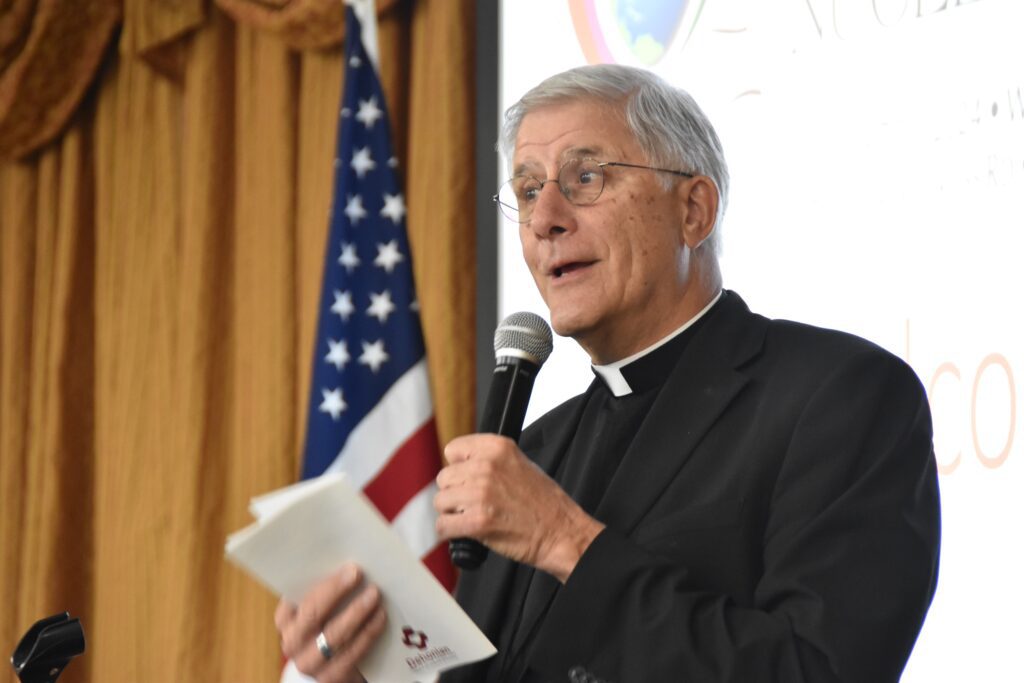
An environmental educator, Sr. Kathleen Storms had the opportunity to read Laudato Sí prior to it being published. “For me it has given us a new creed of beliefs founded on the ‘Gospel of Creation,’ as expressed in scripture, teachings of the Church over the centuries and by numerous popes,” she said. In 2018, on the third anniversary of the encyclical, she was part of a two-day conference in Rome focused on integral ecology. “A term coined by Pope Francis to speak about the oneness of all creation.”
She urged the Mississippi conference participants to consider an “ecological spiritual conversion,” to reflect on what they can change personally, locally and at an organizational level to better care for our common home.
Pope Francis writes that “The effects of the present imbalance can only be reduced by our decisive action, here and now” (Laudato Sí, No. 161).
“What is ours to do?” asked Sr. Kathleen. “Our home matters, our creation matters.” And as people of hope, we can work together to bring change. “But it will take every one of us to be the hope needed to make the changes that are necessary.”
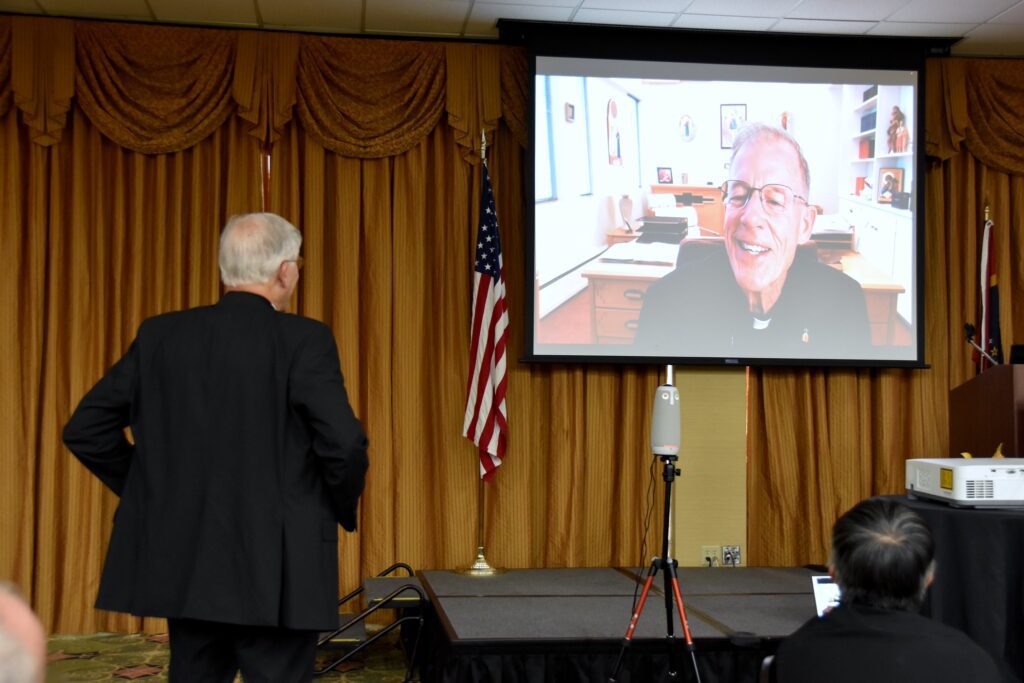
Hope is essential
“Hope” may seem an unlikely concept in the midst of presentations on the threats of climate change and nuclear weapons, but it was a word used repeatedly by both of the conference’s presenters.
“Our hope is in Jesus,” said Archbishop John Wester. “We must be people of hope that believe that God will work in us and through us… As Christians, how is the Lord calling me to be an instrument of peace in nuclear disarmament?”
The archbishop was profoundly impacted by a visit to Hiroshima and Nagasaki in 2017. When he returned to Santa Fe, he was acutely aware that much of the work of developing and testing atomic bombs took place in New Mexico. He has since become a staunch advocate for universal, verifiable nuclear disarmament.
In 2022, Archbishop Wester published a pastoral letter titled, “Living in the Light of Christ’s Peace: A Conversation Toward Nuclear Disarmament.”
In the years since, he has continued to keep the issue in the public eye through letters, speeches and regular “pilgrimages of peace” to Japan on the anniversary of the atomic bombings of Hiroshima and Nagasaki.
Via a pre-recorded interview, and a live Q&A through Zoom, Archbishop Wester spoke to the conference about the challenges of disarmament, including arguments for the use of nuclear weapons as a deterrent against aggression.
“I ask, what is better strategy: deterrence or disarmament?” said the archbishop. “If you look at the danger that nuclear weapons pose, and factor in human nature, tyrants, dictators, terrorism and genuine mistakes, I prefer the strategy of disarmament. Some people may say I am naïve, but I think that the ones who are being naïve are the ones who think that deterrence will work.”
To those who say that deterrence is working, Archbishop Wester insists that “we are simply lucky, and luck is not a good strategy to protect lives… just one Trident submarine has the capacity to destroy all of human civilization. It sounds like hyperbole, but it is not…
“If we care about humanity, if we care about our planet, if we care about the God of peace and human conscience, then we must start a public conversation on these urgent questions and find a new path toward nuclear disarmament.”
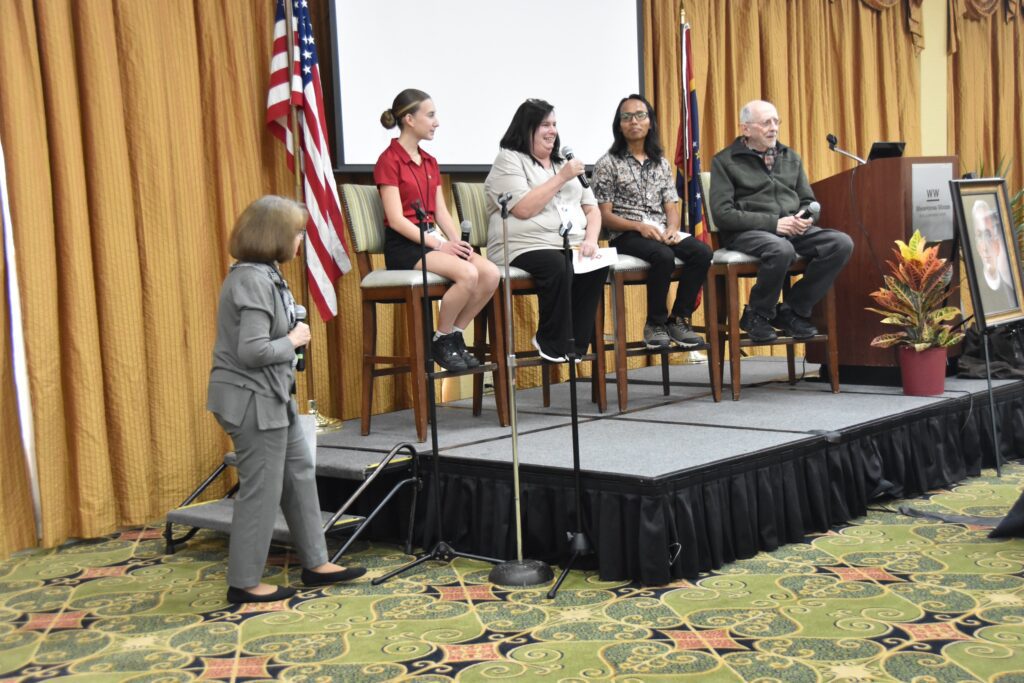
More than just words
One of the challenges of any conference is turning it into something more than just an isolated moment in time. In small and large-group discussions, participants identified “next steps” to be taken personally and locally to better care “for our common home.”
Such actions included commitments to live more mindfully, leaving a smaller ecological footprint on the planet, buying locally, and using recyclable materials as much as possible, as well as participants’ commitment to educating themselves on the topics of the conference and having the courage to engage others in discussion of the threats of nuclear weapons and climate disruption, emphasizing that nuclear disarmament is a pro-life issue.
Groups from each region committed to continuing the work of the conference in their ministries; setting dates for future meetings on the local level to ensure that the work of the conference is not easily forgotten. Coworkers talked about working towards paper-free offices, where everything from budgets to publications to province assemblies is done digitally.
The conference concluded with a commissioning ceremony in which participants committed – in writing – to actions that they will do personally at home as a follow-up to the conference. Each left with paper cranes of peace, as well as a “Tucum Ring,” a symbol of solidarity, especially with the poor and disenfranchised.
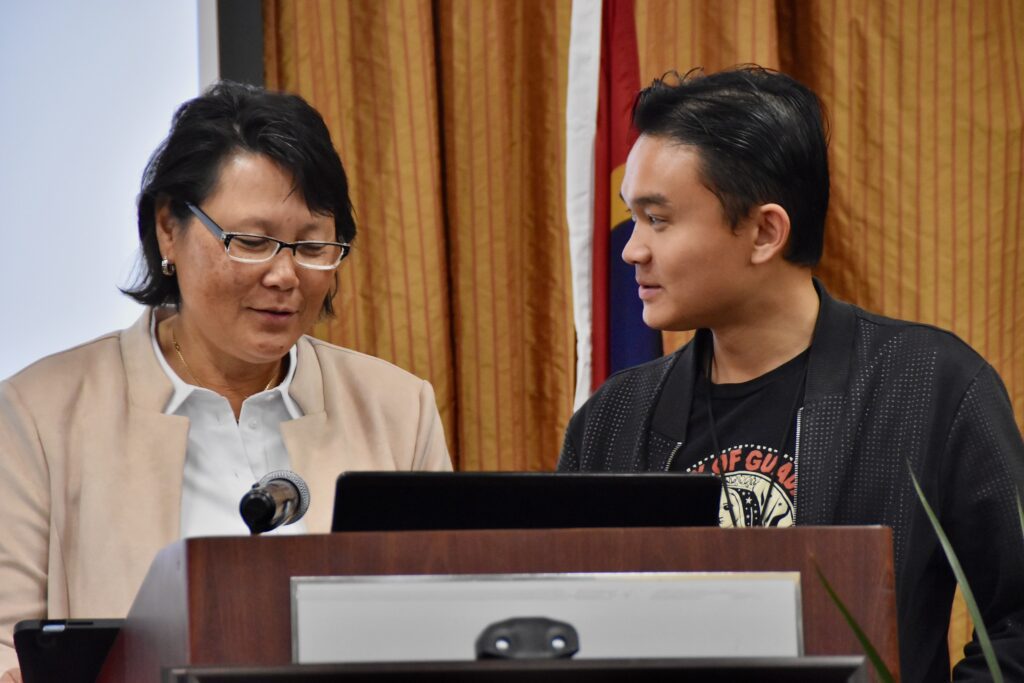
A final message was created, which outlines the work of the gathering and the commitments to which it pledges.
“My dear brothers and sisters, our gathering here in Mississippi is not on the world stage like the big meetings of heads of state or the United Nations, but believe me, if each of us commits to taking concrete action with the tools we will have at the end of this meeting we will make an impact on the world,” said Fr. Gustave Lulendo, SCJ, regional superior of Canada, in his words of welcome to the conference. “Like the leaven of the Gospel, even though it takes such a small quantity to make the dough rise, we will change the lives of our brothers and sisters by influencing the choices they make to preserve our common heritage, this common home that we want to leave to posterity.”
The conference organizing committee: Fr. Jack Kurps, SCJ (chairperson), Fr. Bob Bossie, SCJ, Fr. Peter McKenna, SCJ, Fr. Ushindi Kambale, SCJ, Fr. Paul Hoang, SCJ, Lili Ooi, Joe Tyrell and Sr. Cathy Bertrand, SSND (facilitator).

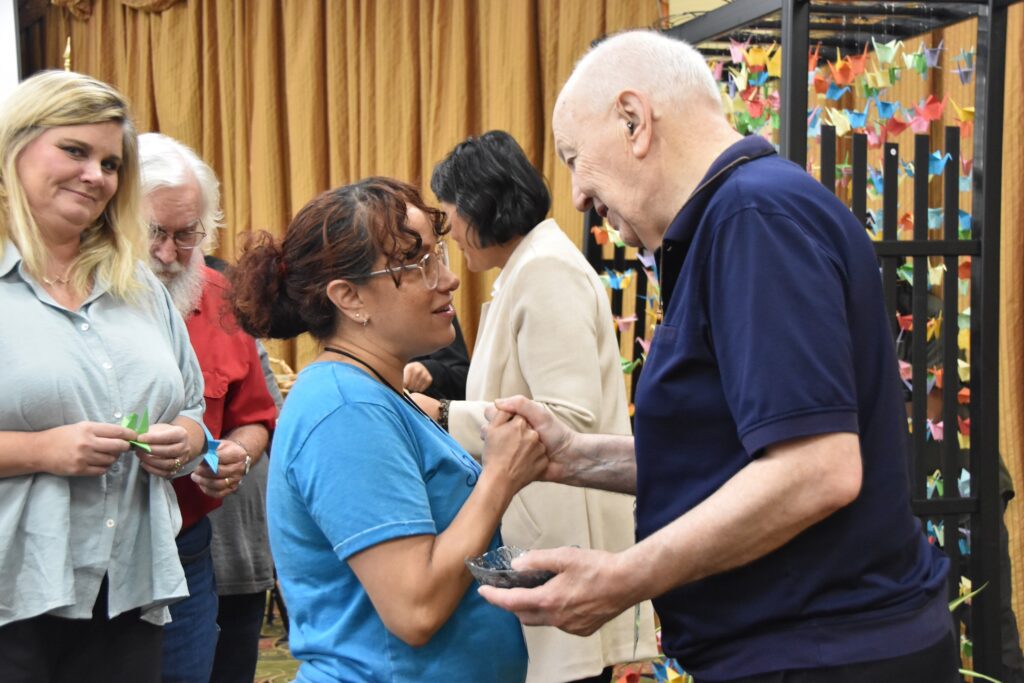
Links
- Fr. Gustave Lulends’s Opening Address

